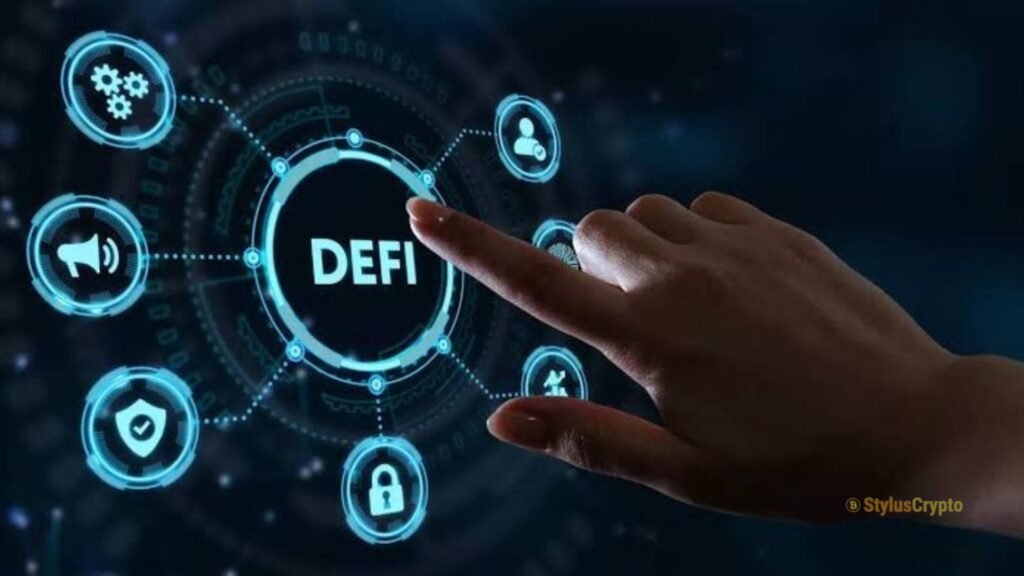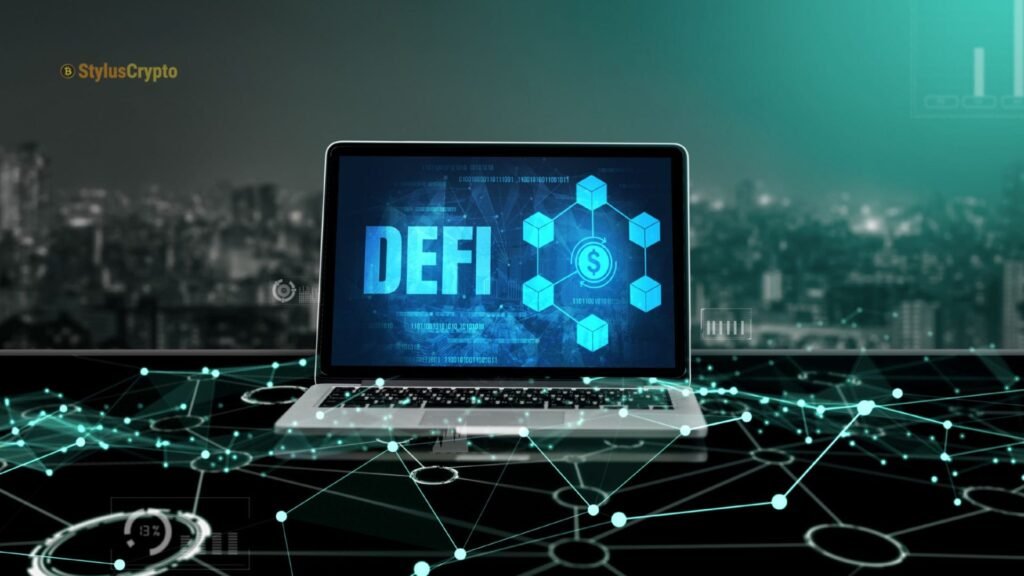The way people use banking services is changing because of Decentralized Finance, or DeFi. DeFi platforms use blockchain technology to get rid of the need for middlemen like banks and other financial institutions. This gives people more power over their money. Defi Beneficial for Individuals is a growing part of the cryptocurrency world that lets people do many things with their money that used to only be possible at traditional banks. For example, you can give and borrow money, trade, and earn interest on your savings. This piece talks about the good things that DeFi does for people and how it changes the way people handle their money.
What is DeFi?
DeFi refers to a network of decentralized financial applications built on blockchain technology, typically Ethereum. The goal of DeFi is to make the financial system accessible to everyone with an internet connection by making it more transparent, open, and permissionless. Rather than relying on banks or other intermediaries, DeFi platforms employ “smart contracts,” or agreements whose terms are hardcoded into the platform’s code and so automatically executed.
Defi covers a wide range of financial activities, including:
- Lending and borrowing: Users can lend their crypto assets to others and earn interest, or borrow assets by providing collateral, all without needing approval from a bank.
- Decentralized exchanges (DEXs): These platforms allow users to trade cryptocurrencies directly with each other, removing the need for centralized exchanges.
- Yield farming and staking: Users can earn passive income by providing liquidity to platforms or staking their tokens.
- Stablecoins: Cryptocurrencies like DAI or USDC are pegged to traditional currencies, providing stability in the volatile world of crypto.
How DeFi Promotes Financial Inclusion
Decentralized Finance (DeFi) is changing the world of finance by letting people who don’t have bank accounts or don’t have enough money in their accounts use financial services. Millions of people can’t use standard finance because they can’t get to banks, live in certain areas, or meet strict credit requirements. DeFi uses blockchain technology to get around these problems, so anyone with an internet connection can join the global market. Users of DeFi can carry out actions such as loans, borrowing, saving, and investing without going through banks or credit institutions.

DeFi platforms are also open 24 hours a day, seven days a week, and don’t require users to meet certain requirements or have good credit. This makes them an option for people in developing countries or other places with limited banking infrastructure. By getting around traditional gatekeepers, DeFi promotes financial inclusion. This gives everyone, no matter their location or socioeconomic position, more control over their money and more chances to get rich.
Opportunities for Passive Income
DeFi provides various opportunities for individuals to earn passive income through methods like yield farming, staking, and liquidity provision. These methods allow users to put their idle crypto assets to work, generating returns without the need for active trading or management.
- Yield Farming: Users can lend or “stake” their crypto assets to liquidity pools on decentralized platforms. In return, they earn rewards in the form of interest or additional tokens.
- Staking: Users can lock up their tokens in a blockchain network to help validate transactions, earning staking rewards over time. This is particularly common in Proof-of-Stake (PoS) networks.
- Liquidity Provision: By providing liquidity to decentralized exchanges (DEXs), users earn a portion of the transaction fees generated on the platform, allowing for steady passive income.
- Interest on Crypto Lending: DeFi platforms allow users to lend out their assets directly to borrowers and receive interest, often at higher rates than traditional banks.
Because of these changes, DeFi is a good choice for investors who want to make money without actively handling their investments.
Defi Transparency and Security
One of the most important parts of DeFi is transparency. All interactions are recorded and can be seen by anyone because DeFi uses public blockchains. This makes trust higher because users can check any transaction or deal on their own. There is no way for financial institutions to hide their actions, and anyone can check smart contracts to make sure they work as planned.
The blockchain networks that DeFi apps are built on using digital security to keep users’ money and information safe. There is a chance that smart contracts will have bugs or be used in bad ways, but because these platforms are decentralized, they don’t have the large-scale fraud or failure risks that come with controlled institutions.
Reduced Fees and Costs DeFi
There are a lot of fees that come with traditional financial services. These include transaction fees and managing fees that banks and brokers charge. DeFi gets rid of these middlemen, which means users pay much less in fees and costs. Defi platform users don’t have to pay banks or other middlemen,
They only pay network fees, which are usually a lot less than transaction or banking costs. DeFi also has better interest rates and returns than other sites, so people can save and make more without losing money to brokers. People who want to borrow, give, trade, or get a better return on their investments will find DeFi a more cost-effective option because of this.
The Future of DeFi
The DeFi business is still pretty new, but it has grown very quickly. DeFi will likely be able to offer even more advanced financial goods and services as the ecosystem grows. Layer 2 solutions are becoming more popular. Defi Beneficial for Individuals, these solutions make networks like Ethereum more scalable and lower the cost of transactions. This will also make DeFi easier to use and less expensive.
Also, improvements in DeFi are likely to spread to areas like real estate, insurance, and decentralized identity. This will give people even more ways to use the financial system without depending on traditional banks. More and more people will use DeFi as they learn about its benefits. This will make it a major force in personal spending.
Also Read: What Are DeFi Crypto? and How Decentralized Finance?
In Summary
Reduced prices, more accessibility, and control over one’s finances are just a few of the many advantages that individuals can enjoy with DeFi. People interested in participating in a decentralized financial ecosystem may find DeFi to be an appealing alternative, despite the dangers involved, due to the possible rewards. Defi Beneficial for Individuals, The future of personal finance is bright with DeFi’s potential, thanks to the technology’s steady advancements.
FAQs About “DeFi”
1. What is DeFi, and how does it differ from traditional finance?
DeFi, or decentralized finance, is a system of financial services built on blockchain technology. It differs from traditional finance by eliminating the need for intermediaries like banks, allowing users to control their assets directly and access financial services in a decentralized, permissionless environment.
2. How can individuals benefit from DeFi?
Individuals benefit from DeFi through greater accessibility to financial services, enhanced control over their assets, opportunities for passive income, transparency, and reduced fees. Defi Beneficial for Individuals allows anyone with an internet connection to participate in the financial system without needing approval from banks or other institutions.
3. Is DeFi safe to use?
While DeFi is built on blockchain technology and offers high levels of security, it is not without risks. Smart contracts can be vulnerable to bugs or hacks, and users need to be cautious when choosing platforms. It’s essential to use well-audited protocols and practice proper security measures, like using hardware wallets, to minimize risk.
4. How can I earn passive income with DeFi?
You can earn passive income in DeFi through yield farming, staking, and providing liquidity. By lending your crypto assets to a DeFi platform or staking them, you can earn interest or rewards in the form of tokens. These returns are often higher than what traditional savings accounts offer.
5. What are the risks associated with DeFi?
The primary risks in DeFi include smart contract vulnerabilities, market volatility, and regulatory uncertainty. Since DeFi operates in a relatively new and unregulated space, users should be aware of potential risks and exercise caution when engaging with DeFi platforms.

